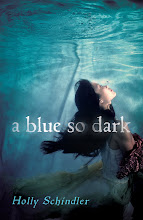
I'm so intrigued by the fact that you're a full-time ghostwriter! Please tell us how you personally came to the gig.
I had been a staff writer for several publications (teacher magazines, a book packager, etc.) when I started freelancing on the side to start getting into more book projects.
I had no idea what “ghostwriting” was – or that you could make a living at it – until I saw ads for it on a freelance writing job board. Even so, my first actual ghostwriting gig I found in the local newspaper!
What kinds of projects are available for a ghostwriter? Books? Articles? Fiction? Non-fiction?
I would say all of the above. In my experience, ghostwriters tend to specialize. I know several ghostwriters who all they do is articles, and they probably make more than me! Others ghost-blog, you know, for corporations or consultants or what have you. I started with books, and it seems the more books I do, the more folks want to hire me to do that. So I would say whatever can be written, can be ghostwritten.
For branding purposes, it’s really helpful to find a niche and try to own it. For me, I include a formal book proposal in nearly every bid, which is something not every ghostwriter does, so I’ve been able to stand out a little there. Basically, the goal is to do one thing and do it really well.
So if you’re great at blogging, if all your published clips are blogs, that would probably be the best place for you to start branding yourself as a ghost-blogger. Same thing with articles, books, fiction, non-fiction, fantasy, romance, whatever.
Clients want to hire someone who’s already done what they need done, so the more credits you have in that area – blogging, articles, books – the more likely you are to get the gig.
How do you find jobs as a ghostwriter? (How does a writer get started ghosting?) Do you need an agent? Do you approach publishers / editors directly?
I spend a lot of time on http://www.guru.com/ and http://www.elance.com/. I mean, a LOT of time! I supplant those two websites with occasional referral projects; some from agents, some from publicists, some from former clients.
So it’s really a combination of things, like any freelance job. My advice to someone starting out in ghostwriting is to invest a little time and money at first. Guru.com and Elance.com cost money, but the payoff is if you get one job from it you’ve paid back that investment right away and the rest is gravy.
It’s also good to have a website with links to published clips. In my case, I have a blog where I post advice for clients/writers on how to get published. I also post book covers I’ve worked on with links to amazon.com, where prospects can read writing samples.
So in the beginning try to get as many published clips as you can to show clients, “Here, look at what I’ve done.” No clip is unworthy. Oftentimes I run across clients who aren’t looking to pay big money to a professional, but are actively looking for a student or recent college grad just starting out who has the talent but not necessarily the credentials.
So in that case you really only need a half-dozen clips or so to get their interest. If you act professionally and can settle on a fair price, many times beginning writers can oftentimes beat out more established writers for such gigs.
Have you ever written a book in a series? If so, was it for a series you were already familiar with? How were you able to get into the "voice" of the series?
I haven’t been lucky enough to work on a series yet, but you bring up a good point about “voice.” Every client has one; male, female, young, old, black, white, chick lit, academic, etc.
In ghostwriting it’s very important that it not be “your” book so much as the client, so getting their voice is key. I often call myself a “translator,” not a ghostwriter, because so much of my job is listening to the client to see what his/her voice is like.
Oftentimes clients don’t think they have a voice, or prefer someone else’s style to their own. They’ll often say, “Have you read The 4-Hour Workweek? I really like that guy’s writing style” or, “Have you read Eat, Pray, Love? I’d like to sound like her…” The goal then is to find out what’s unique about the client’s favorite book and try to match that writing style with the client’s ideas. It can be challenging, but that’s what so great about this job – it’s something different every day.
What's your typical day look like? How much time do you spend chasing new work vs. writing your current projects? Or do the projects come to you now?
My day starts with some exercise because the rest of the day is spent sitting on my butt! But work-wise, I pretty much have to keep a 9 to 5 schedule because most of my clients call during those hours. I spend a lot of time on the phone, actually, which means I work pretty well into the evening to catch up on writing in between conference calls and emails. I prospect, or look for clients, throughout the day. I hope on Guru and Elance 5 or 6 times a day, just looking for jobs that match my qualifications.
In between all that I do have to actively “chase New York” and query/pitch on behalf of my clients’ various projects, so there is a lot of juggling going on.
How long do you usually have to write a specific project?
It depends on the client and the length of the book, but typically I request 2-4 months for a full-length book project. I try to give my clients a chapter per week, or at least 10-15 pages, so that usually ends up netting us 40,000 to 50,000-words over the 4 month period.
How does the process work...do you get an outline from the publisher? Do you have any say in the content? Do you work a project through to completion and then submit, or do you have to submit chapters / sections as you go along?
I typically work for the client first, then the publisher. Usually, the client and I flesh out the outline, the title and subtitle, the chapter content, write a book proposal based on that and then pitch it to the publisher. Once the publisher approves the outline, then we start filling it in.
We just start at the beginning and get to writing. I deliver that week’s chapter and we don’t move on until the client is happy with what’s been done so far. If there are changes that need to be made, we make them before moving on.
So the outlining process is really critical to getting to know the client, and vice versa. It’s our first “creative collaboration” and it’s a nice way for clients to get their feet wet in the ghostwriting process, as most of them have never done it before. So by the time we have the title, subtitle and outline in place, they’re used to the back and forth collaborative process and writing the chapters comes more easily that way.
What's the best part of ghosting?
I would have to say the people. By that I mean the variety of the people I get to work with and learning their stories, their systems, their successes and getting a published book out of that.
Many clients are eager to have their name on a book, and helping them achieve that goal is satisfying to me. I have also met so many interesting and exciting people over the course of my career; people I would have never met – because of geography, industry, etc. – that have really taught me a lot about my business, about creativity, about what they do and how the world works.
Writing is a pretty solitary activity, but ghostwriting is very, very collaborative and while that was something I had to get used to in the beginning, now that’s the best part of my job!
Who is ghostwriting perfect for? What kind of person wouldn't make a good ghostwriter?
In ghostwriting, as with any other freelance writing position – or, really, freelance position period – you definitely have to be a self-starter. So it’s good for folks who are pretty disciplined with their time. Working from home it’s very easy to turn a quick errand into a half-day off, or a snack into a meal, so you pretty much have to set “office hours” for yourself and really stick to them.
Personality-wise, you can’t have too big of an ego if you go into ghostwriting. You have to look at it like, “Okay, this is the client’s book, I need to write in his voice and make this the best it can be for him.”
What's the best piece of advice you can give to a writer interested in getting started ghostwriting?
Gosh, I would have to suggest they do what’s often hardest for writers: treat it like a business. Get those published credits, as many as you can. Link them together in a professional-looking website or blog. Research ghostwriting and find out what going rats are for articles, blog posts, website copy and even book-writing. But don’t be too upset if a client comes in with a low bid.
For instance, if you really want to get into book writing and a client offers you less to write a book than you would get for writing a 12-page article, think about what the client is bringing. If the opportunity is good enough – if you like the topic, or just the client, or it’s for a great publisher, or something else is attractive about it – it could be worth the lower cost to break into that line of ghostwriting.
The most important thing is to treat this like a profession. Guru.com and Elance.com are clogged with folks who write as a hobby. But the folks who come there are looking for professionals. If you can act professional and write, you too can be a ghostwriter – IF you want!
Thanks, Rusty! I know so many published authors who haven’t yet been financially able to make the leap to writing full-time…I completely admire your dedication and wish you continued success!
…And now that our interests have been piqued, we can continue to find out more about ghosting at Rusty's blog.




































No comments:
Post a Comment